Civil society. Untiring work.
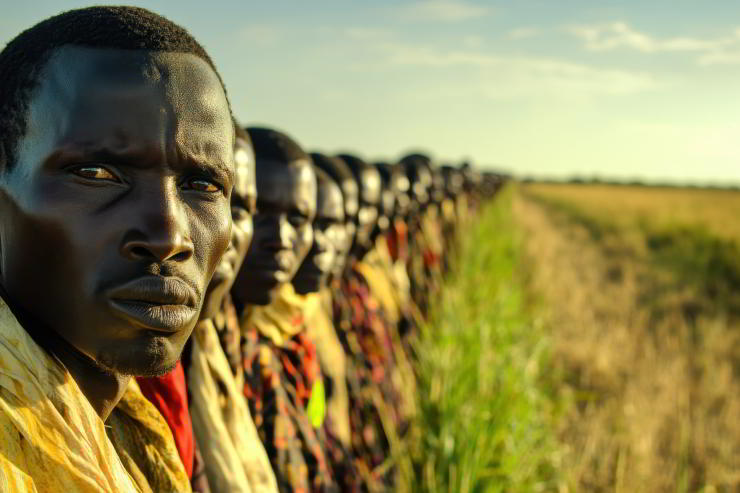
Despite the difficulties and risks that mark the current political scenario, it can be said that even today, civil society movements operate with courage and commitment.
According to Congolese jurist Paterne Milongo, in several countries of sub-Saharan Africa, civil society has expressed its desire to evolve as a political actor and as a counter-power since the beginning of the 1990s, when the single-party regime was first called into question, and trade unions, religious movements and associations imposed themselves as actors in the public debate. This is also the history of the Republic of Congo. It was during that period that the social forces in the country began to demand change and, finally, the establishment of a state
of law with all its characteristics.
The last decade of the last century began in Congo with the single-party regime of General Denis Sassou-Nguesso, the current president. However, for five years, from 1992 to 1997, the head of state had to surrender to the transformations by opening up to the participation of other political groups, to voting and finally, giving up power, only to regain it after months of conflict five years later.
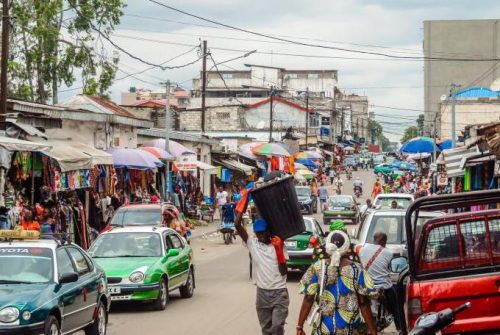
Street Market in Brazzaville. Giving a voice to those who have none. iStock/urbazon
What happened in that period, however, left traces in Congolese society. After all, the desire for transformation shown by civil society in those years is written into the country’s Constitution, which in Article 46 states: “All citizens have to work for the common good, to fulfil all their civic and professional obligations and to pay their taxes according to the conditions established by law. They have to work to the extent of their abilities and possibilities”. Despite the difficulties and risks that characterise the current political scenario, it can be said that civil society movements continue to operate with visibility and courage, and are an important part of public debate.
Popular organizations and associations often manage to provide solutions to people’s problems, giving a voice to those who have none. With their daily work, they denounce, raise awareness, question and warn political decision-makers. While the latter often treat activists as people in the pay of foreign forces, at the same time new margins of discussion open up on many issues within public debate.
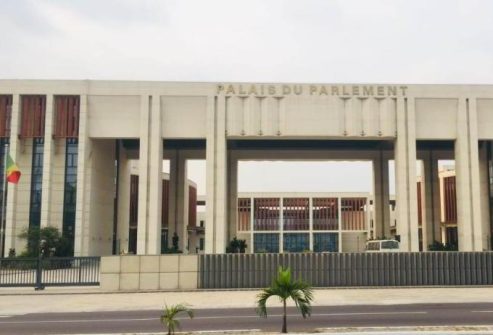
Brazzaville. House of Parliament. Civil society regularly manages to influence bills in the government and parliament. CC BY-SA 4.0/JunyNG
Alongside the Church, which remains a force that counts in the country, Congolese civil society has dialogue with the population and with politics, playing an essential role, especially now that the opposition has lost ground and is increasingly less capable of propping up the system. As a result, it is there to defend and promote human rights or to fight the most arbitrary attitudes of those in power. One of the main fields of action of civil society is the promotion of transparency and the fight against corruption. These are decidedly important challenges in a country that ranks 151st out of 180 in the Index of Perceived Corruption, edited every year by Transparency International. There are many corruption scandals that over the years have involved local power, and often its international partners.
Among countless obstacles
In recent years, activists have also denounced the impunity that has taken root in all areas of life in Congo, regularly managing to inspire bills in the government and parliament. One of the main battles today is to pass legislation to protect civil society actors, who are pushing for greater independence. It is no coincidence that we are working in this field. Among the difficulties inherent in activism in Congo, in fact, is access to sources of information and the reduction of civic space.
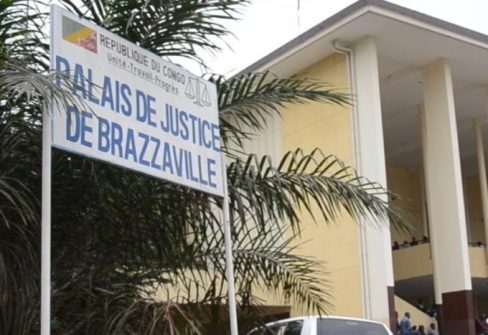
Brazzaville. The Palace of Justice. In recent years, civil society activists have also denounced the impunity that has become entrenched in all areas of Congolese life. (Photo:OCDH)
Several times, members of civil society have been assimilated to mercenaries, or opponents who aim to hinder the regime in power; several of them have also been arrested. Some have also been denied accreditation to carry out work activities or to conduct investigations, especially when it comes to monitoring projects carried out by the state. Although censorship is prohibited by the Congolese Constitution, some areas of journalistic investigation remain taboo and touching them exposes the media to serious consequences, both direct and indirect.
It is worth mentioning some of the organizations and platforms of the Congolese civil society that have been on the front line for longest: the Congolese Observatory of Human Rights (OCDH), founded in 1994, at the end of the first phase of the civil war and at the instigation of a group composed of lawyers, journalists, doctors and students; the Justice and Peace Commission (CJP) of the Catholic Church, the Meeting for Peace and Human Rights (RPDH), an organization founded in 2003 and the Action of Christians for the Abolition of Torture (ACAT)
of the Evangelical Church.
All these organisations and others have then animated what has become the local section of the campaign for transparency in the extractive sector, Publish What You Pay. This initiative has advanced the public debate on a crucial issue: the honest management of the numerous natural resources that Congo is rich in, from oil to timber. The work of this coalition has also opened up partnerships with foreign countries and cemented the trust of international donors.

To monitor the public governance of revenues from the extractive industry. File swm
Civil society participation in the debate on resource management and, more generally, on public affairs is now a prerequisite required by donors to be able to act in the Republic of Congo. The role of civil society at the national level has been further recognised with its representation on the Advisory Council of the Extractive Industries Transparency Initiative (EITI), an international organisation founded in Norway to monitor the public governance of revenues from the extractive industry, which Congo joined in 2002. Another initiative to put pressure on the government on this issue was launched in Paris in 2003, with the leadership of the Catholic Church, together with the Evangelical Church. This, although shortly before, a letter from the bishops on the issue of oil had aroused the ire of the government. The issue, after all, is fundamental in Congo: the sale of crude oil alone provides for about half of the country’s gross domestic product and a share of its exports of between 75 and 80 per cent.
The contribution of grassroots movements does not stop there. After the trail of armed conflicts and tensions that crossed the country until the end of the 1990s, the aforementioned Congolese Observatory of Human Rights (OCDH) became a civil party in the lawsuits filed by the
families of the victims in the case known as the disparus du beach,
disappeared from the beach.
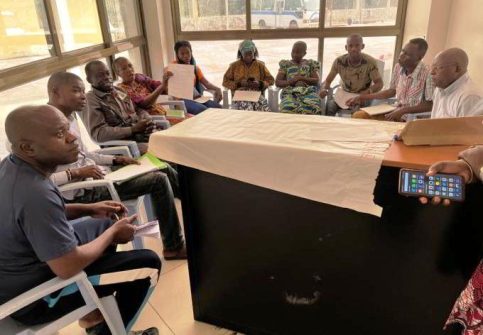
Meeting of the members of Civil Society. Grassroots movements have made an important contribution to Congolese society. (Photo: OCDH)
Specifically, it concerns the disappearance of over 350 refugees who returned by river to Brazzaville at the end of the civil war, as part of a tripartite agreement between the Democratic Republic of Congo, where the refugees lived, and UNHCR. Once they arrived in the Congolese capital, in May 1999, these people were taken for questioning – presumably for their alleged involvement in events that occurred during the conflict – and were never found again.
Last but not least, the commitment of civil society managed to move the institutions themselves. It is clear that the work of activists has contributed to the establishment of bodies such as the National Commission for Human Rights (CNDH), the High Authority for the Fight against Corruption (HALC) and the National Commission for Transparency and Accountability in the Management of Public Finances (CNTR). The creation of these bodies represents a step forward. At the same time, over the years, the government has equipped itself with a body that aims to “numb” the work of Congolese organisations, called the Consultative Council of Civil Society, which should not be considered a true bearer of the activists’ requests. (Open Photo: 123rf)
Ghislain Aristide Ngouma



